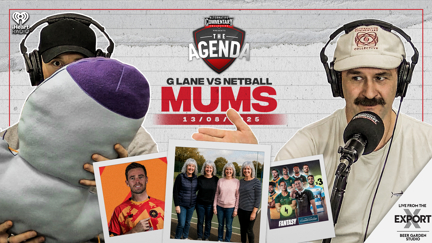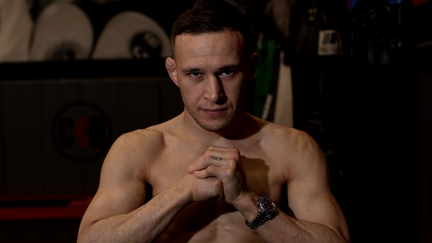Hall of Heroes: Mark Hunt
- Publish date
- Saturday, 29 May 2021, 11:10AM

With no major MMA events this weekend, ACC UFC resident expert Felix Heath-Collins decided to debut a new segment called the "Hall of Heroes”.
So why is it necessary to create an alternative to the UFC's official hall of fame? Because their hall is inherently biased. Just like the fighter's rankings, the hall of fame really should be separate from the corporate machinations of the promotion itself.
There is a predictable preference in the UFC's hall of fame for fighters and personalities that are “company men” (ie sycophants). It's all too easy in such an individual sport as cage fighting to lose empathy for fellow athletes, when you might well be forced to fight them later. Yes, there's a great deal of sportsmanship and respect between fellow martial artists, and it's one of the things that makes this sport so spectacular. After a particularly brutal war in the cage, the two combatants who battered each other only hours before will often take a selfie side-by-side in hospital beds. But the fighters don't have any say in either the “official” UFC rankings or the hall of fame.
Two major things distinguish my Hall of Heroes from the UFC's hall of fame. Firstly inductees must be fighters or pioneers who do not have a place in the UFC's hall of fame. Secondly, it won't be a static list hall like the UFC's, but a living one instead. A fighter or pioneer can earn entry into the Hall of Heroes for great contributions to the sport, as long as they also show some degree of respectability as a human. From there a Hero can be expelled for their great contributions to the sport being found somehow illegitimate (for example significant drug testing failures like in the cases of Brock Lesnar and Jon Jones), or they could also be expelled significantly immoral actions (for example: in the case of fighting legend and Trump-crazed Freemason Pat Miletich's involvement in the 'January 6th Insurrection Riots', or Jon Jones). Any Heroes that no longer qualify for the Hall will be escorted out at the next induction ceremony.
With that preamble aside let's move on to the induction of the first Hero into the Hall. And that Hero is Mark “The Super Samoan” Hunt.
Mark “The Super Samoan” Hunt was born in South Auckland, New Zealand on March 23rd 1974 into a large family. After an abuse-filled upbringing that is tragically recounted in his autobiography “Born To Fight”. The dark shadows cast by childhood beatings, bullying, witness to sexual assault, and two stints in prison only hardened the strength of his will. Shortly after his second prison stint Mark Hunt got into a streetfight outside an old Auckland nightclub “Don't Tell Mama” that he described in his book as “one of those scraps no one wanted to miss”. In that small street brawl, he reportedly knocked out at least three people, before being suddenly yanked into the club and hidden in the staff toilets while the ruckus and police presence died down in the street outside. Sam Marsters, a bouncer working at the club, had rescued Hunt from what would've probably been another, longer, and more severe prison sentence. Marsters then offered Hunt “a real fight”, and within a week Hunt had a Muay Thai kickboxing win under his belt via knockout and hosted at that very same nightclub that he was almost arrested at the week before. Within a year Hunt had moved to Sydney, Australia to train kickboxing further.
Within a few fights, Hunt got to truly test his mettle when he began fighting in K-1 Kickboxing in Japan - the absolute pinnacle of kickboxing competition at the time. During his short time competing there he won two K-1 Oceanic tournament titles consecutively (2000 and 2001), and then went on to win the coveted “K-1 World Grand Prix” tournament title in 2001.
After his short yet illustrious kickboxing career, Hunt made his MMA debut in arguably the biggest pool at that time: Pride Fighting Championship. He would come to be defined by both his power and durability in a fight. A man who explained that his favourite ground-based technique in MMA was getting back up to his feet to keep brawling.
Through “The Super Samoan” Mark Hunt's 28 professional MMA fights he often traded wins and losses, ending up with a journeyman-like record of 13-14. What that record betrays is the competition Hunt faced in his career. Hunt earned notable wins against Wanderlei Silva, Mirko “Cro Cop”, “Big” Ben Rothwell, Cheick Kongo, Stefan “Skyscraper” Struve, Roy “Big Country” Nelson, “Bigfoot” Silva, Frank Mir, and Derrick “The Black Beast” Lewis. Some of his notable losses included the likes of Josh Barnett, heavyweight 'GOAT' (Greatest Of All Time) Fedor “The Last Emperor” Emelianenko, Alistair “The Demolition Man” Overeem, Melvin Manhoef, Gegard Mousasi, Junior dos Santos, Fabricio Werdum, and Stipe Miocic. His MMA record mostly contains names deserving of their own places in the Hall of Heroes, with champions and legends galore.
If there's an MMA fight that best represents Mark Hunt and his willingness to scrap no matter the cost it was in his brutal first fight against “Bigfoot” Silva. That absolute war was judged a majority draw and is widely regarded as one of the best heavyweight fights in the sport's history.
Stylistically Mark Hunt was always a brawler. He fought until he couldn't physically fight anymore. Savagely powerful punches tended to floor opponents, and Hunt developed a reputation as the “Walk-Off King” for punching opponents unconscious and then walking off to celebrate the KO, aware they weren't getting back up any time soon. Along with that game-changing power, Mark Hunt had arguably the strongest chin in the history of MMA. He also had the height and reach typical of the average middleweight, and yet was big enough to always fight at heavyweight (up to 120 kgs in the UFC). Mark Hunt was the “Iron” Mike Tyson of MMA, despite how immoral Tyson was outside the ring.
In his personal life, Mark Hunt is a changed man. He is happily married with several children and has learnt to love late in life. Hopefully, the inevitable brain damage from his fighting career doesn't hinder his wellbeing in any significant way or that of his family.
He's got to be my favourite fighter to watch. He's always been an entertainer, but you can tell some of his best fights were without a crowd and in the 90's outside of K Road nightclubs in Auckland.
Mark “The Super Samoan” Hunt earns the illustrious first induction into my Hall of Heroes for the very reasons he doesn't have his deserved spot in the UFC's hall of fame: he's crazy. He also brought a legal suit against the UFC for the Brock Lesnar debacle. Both admirable qualities in my book.
Speaking of books, the best way to learn more about “The Super Samoan” is to read his autobiography “Born To Fight”, co-authored by Ben McKelvey. The best way to see the vast majority of Hunt's fights is to get a UFC Fight Pass subscription, which currently has the most impressive MMA library, with Pride, UFC, and many kickboxing fights too, along with other martial arts.
Take your Radio, Podcasts and Music with you




